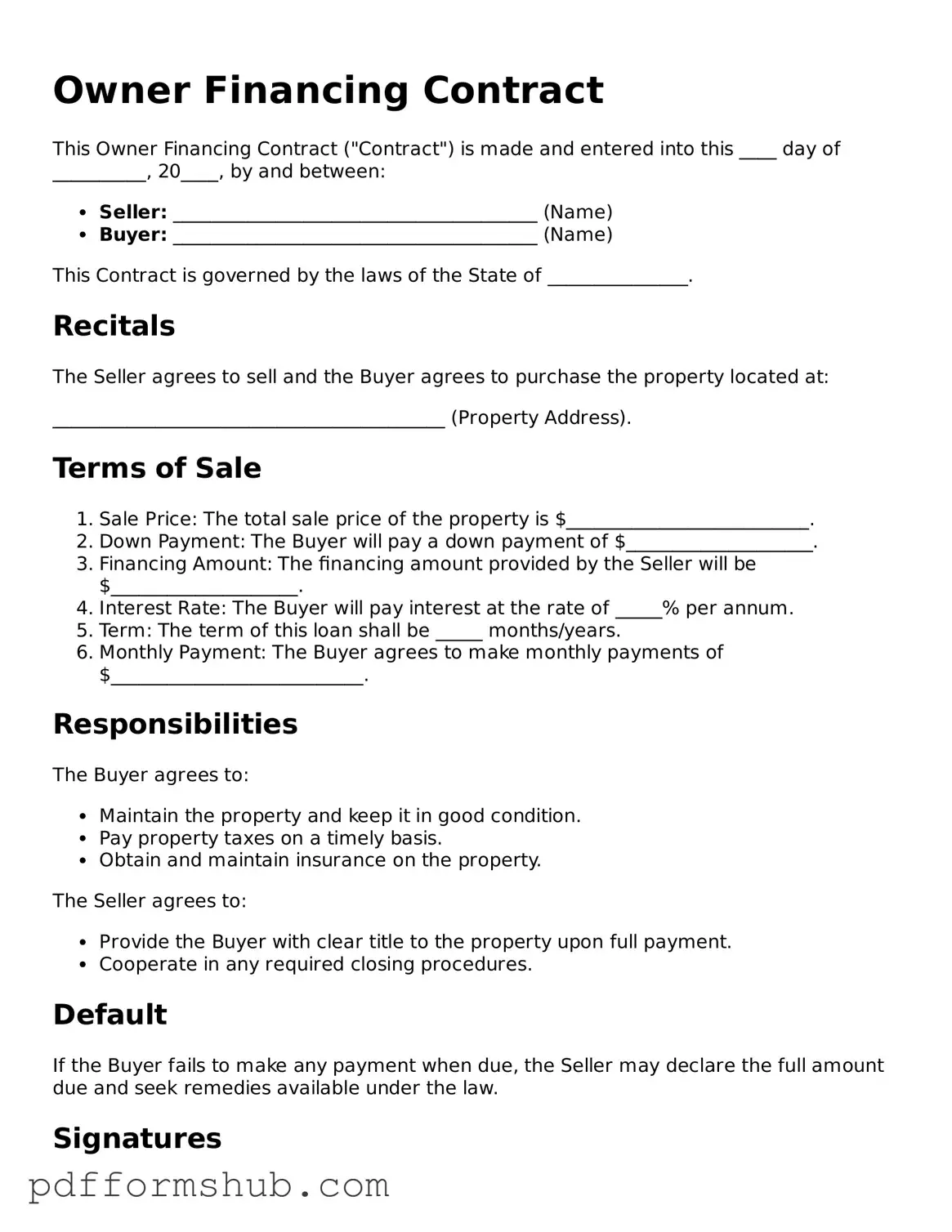Valid Owner Financing Contract Form
An Owner Financing Contract is a legal agreement that allows a buyer to purchase property directly from the seller without going through a traditional lender. This type of contract outlines the terms of the financing arrangement, including payment schedules and interest rates, making it a flexible option for both parties. If you're considering this route, take the next step by filling out the form below.
Customize Form

Valid Owner Financing Contract Form
Customize Form

Customize Form
or
Free PDF Form
Short deadline? Complete this form now
Complete Owner Financing Contract online without printing hassles.